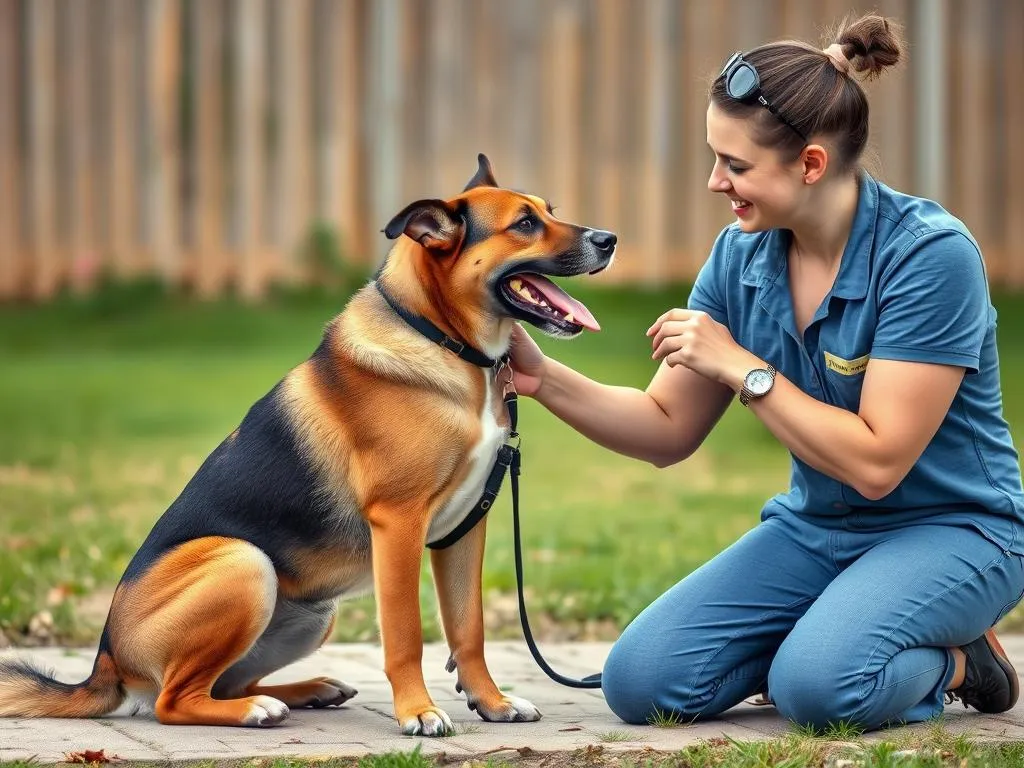
Introduction
The role of a dog trainer is both rewarding and impactful, serving as a bridge between dogs and their owners. As a dog trainer, you not only teach essential commands and behaviors but also help strengthen the bond between pets and their humans. The importance of dog training cannot be overstated; it fosters a harmonious living environment, enhances the safety of both pets and people, and contributes to the overall well-being of dogs.
Embarking on the journey of becoming a dog trainer offers a unique opportunity to work closely with animals and their owners, making it a fulfilling career choice. This article will guide you through the essential steps to become a successful dog trainer, outlining the necessary skills, education, practical experience, and business strategies to help you thrive in this profession.
Understanding the Role of a Dog Trainer
Definition of a Dog Trainer
A dog trainer is a professional who teaches dogs to follow commands, behave appropriately, and address behavioral issues. Trainers work with a variety of breeds and temperaments, developing tailored training programs that suit individual dogs and their owners.
Types of Dog Training
Dog training encompasses several different areas, each requiring specialized knowledge and skills:
- Obedience Training: Focused on teaching basic commands and manners, obedience training is essential for all dogs and their owners.
- Behavior Modification: This involves correcting specific behavioral issues, such as aggression, anxiety, or fearfulness, often through targeted strategies.
- Specialty Training: This includes advanced training for activities such as agility, therapy work, or service dog training, which requires a deeper understanding of canine behavior and specialized techniques.
Skills Required for Dog Trainers
To excel as a dog trainer, certain skills are crucial:
- Communication Skills: Trainers must effectively communicate with both dogs and their owners, ensuring that instructions are clear and understood.
- Patience and Empathy: Working with animals requires a calm demeanor and the ability to empathize with both dogs and their human companions during training sessions.
- Problem-Solving Abilities: Every dog is unique, and trainers must be adept at developing creative solutions to address individual challenges.
Educational Pathways to Becoming a Dog Trainer
Formal Education Options
While formal education is not strictly necessary to become a dog trainer, it can enhance your understanding of animal behavior and training techniques. Relevant degrees, such as animal behavior or veterinary science, provide a solid foundation for your career. Additionally, many online courses and certifications are available, covering topics like canine behavior, training methodologies, and communication skills.
Certification Programs
Pursuing certification can significantly boost your credibility as a trainer. Recognized organizations, such as the Association of Professional Dog Trainers (APDT) and the Certification Council for Professional Dog Trainers (CPDT-KA), offer programs that validate your skills and knowledge. Being certified can open doors to more job opportunities and increase your earning potential.
Workshops and Seminars
Hands-on experience is vital for a successful training career. Attending workshops and seminars allows you to learn from experienced trainers, gain practical knowledge, and stay updated on the latest training techniques. Look for local and national events that focus on dog training and behavior.
Gaining Practical Experience
Volunteering at Animal Shelters
One of the best ways to gain experience is by volunteering at animal shelters. This not only exposes you to various dog breeds and temperaments but also provides invaluable networking opportunities. Working with shelter dogs helps you develop your training skills in real-world situations while making a positive impact on the lives of abandoned animals.
Apprenticeships with Experienced Trainers
Finding a mentor in the field can greatly enhance your skills and confidence as a dog trainer. Look for apprenticeship opportunities with established trainers, where you can learn through observation and hands-on practice. This mentorship can be instrumental in refining your techniques and understanding different training approaches.
Personal Experience with Dogs
Training your own dog is an essential part of your development as a trainer. It allows you to put theory into practice and gain firsthand experience in training techniques. Keeping a training journal can also be beneficial, helping you track your progress and reflect on what works best for you and your dog.
Developing Your Training Style
Understanding Different Training Methods
Familiarizing yourself with various training methods is fundamental to becoming a well-rounded trainer. Here are some popular approaches:
- Positive Reinforcement: This method involves rewarding desirable behaviors to encourage their recurrence, promoting a positive learning environment.
- Clicker Training: A form of positive reinforcement, clicker training uses a distinct sound to mark desired behaviors, followed by a reward. This technique helps dogs understand exactly what behavior is being rewarded.
- Balanced Training: This approach combines positive reinforcement with corrections for undesirable behaviors, aiming for a balanced methodology that suits the individual dog.
Choosing Your Niche
As you develop your training style, consider specializing in a particular area. You may choose to offer group classes or private sessions, focusing on specific dog breeds, behavioral issues, or training goals. Finding your niche will help you attract clients who are looking for the specific expertise you provide.
Building Your Philosophy
Your training philosophy should be adaptable, allowing you to tailor your techniques to fit individual dog needs. Continuously educate yourself about canine behavior and training methodologies to refine your approach and stay effective in your training sessions.
Starting Your Dog Training Business
Creating a Business Plan
Before launching your dog training business, it’s essential to create a comprehensive business plan. This document should define your services, target market, and pricing strategies. A well-structured plan will guide your decisions and help you stay focused on your goals.
Marketing Your Services
Building an online presence is crucial for attracting clients. Create a professional website that showcases your services, testimonials, and training philosophy. Utilize social media platforms to connect with potential clients and share valuable content related to dog training. Networking with local pet businesses and veterinarians can also lead to referrals and collaborations.
Legal Considerations
Starting a business comes with legal responsibilities. Ensure you obtain any necessary licenses and permits required in your area. Additionally, consider investing in insurance to protect yourself from potential liabilities as a dog trainer.
Continuing Education and Professional Development
The Importance of Staying Updated
The field of dog training is constantly evolving, with new research and trends emerging regularly. Staying updated on these changes is vital for your success. Engage with resources like books, podcasts, and webinars dedicated to canine behavior and training techniques to enhance your knowledge.
Joining Professional Organizations
Becoming a member of professional organizations can provide numerous benefits, including networking opportunities, access to resources, and potential discounts on continuing education courses. These connections can foster professional growth and keep you informed about industry changes.
Conclusion
Becoming a dog trainer is a fulfilling journey that requires dedication, education, and hands-on experience. By understanding the role, gaining practical experience, and developing your unique training style, you can build a successful career helping dogs and their owners. With the right preparation and a passion for canine companionship, you can embark on this rewarding path and make a real difference in the lives of pets and their families.
FAQs About Becoming a Dog Trainer
What qualifications do I need to become a dog trainer?
While formal qualifications are not mandatory, having a background in animal behavior or psychology can be beneficial. Certification from recognized organizations can enhance your credibility.
How long does it take to become a certified dog trainer?
The timeline varies depending on the training program and your prior experience. Generally, it can take several months to a few years to gain the necessary skills and certification.
Can I train dogs part-time while keeping another job?
Yes, many trainers start part-time while maintaining other employment. This approach allows you to build your client base gradually.
What are the common challenges faced by dog trainers?
Common challenges include managing difficult behaviors, dealing with uncooperative clients, and maintaining motivation in training sessions.
How much can I expect to earn as a dog trainer?
Earnings can vary widely based on experience, location, and specialization. Entry-level trainers may earn a modest income, while experienced trainers with a solid client base can earn a substantial income.









